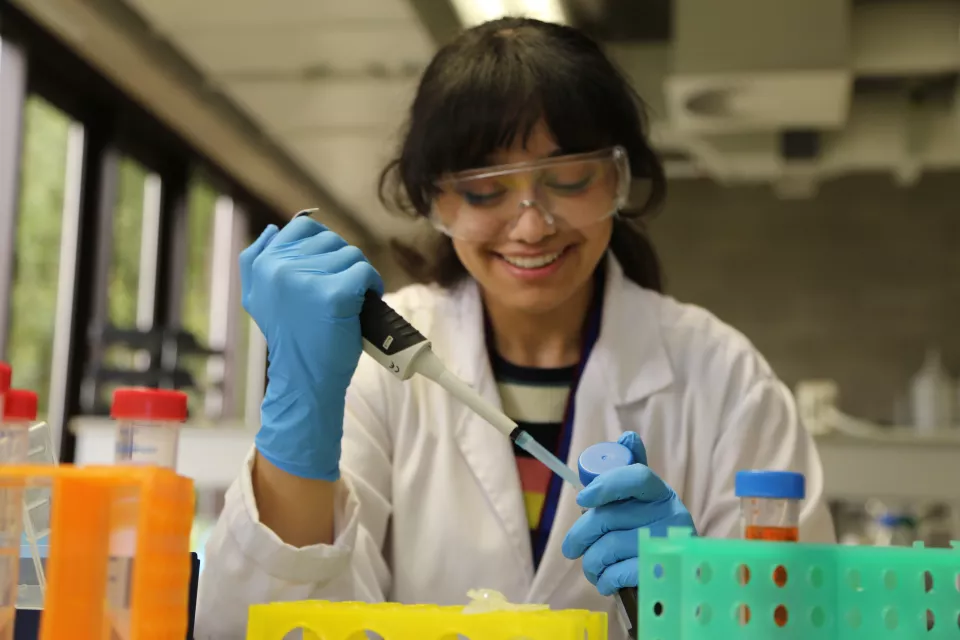
Course: BSc Bioscience
Supervisor: Dr Fabianá Hoffmann Sardá
Name of Research Project/Activity:
Integrative Hepatic Microbiome Analysis of Mice Subjected to Novel Sweeteners.
Q) Can you tell me a bit about yourself, your background, and why you decided to study the course you are taking at UL?
I am from Limerick, so it made the most sense to study at UL rather than anywhere else because of the opportunities available to me in my own city. My course offers a breadth of areas to study, with lots of choice along the way. I have been interested in biology and chemistry for years and it is wonderful to study your favourite subjects every day.
Q) What motivated you to apply for the Summer Bursary Programme?
Last summer I was awarded a similar bursary to pursue research at UL. The experience was very valuable, and I continued working with my group over the academic year. I discovered that I love research and wanted to improve and develop my laboratory skills. The project I worked on last summer has expanded in new directions and I wanted to remain part of it. My supervisor has jointly established UL’s first food-grade lab and this was a unique chance to upskill.
Q) What are you doing as part of your research here at UL?
This project is a comprehensive investigation into the effects of novel sweeteners on gut microbiome health and diversity using the hormone FGF21 as an indicator. This is measured by quantitative real-time PCR (polymerase chain reaction). FGF21 also has a role in regulating lipid and glucose metabolism, which means it can provide insight to overall organism health. If novel, naturally occurring sweeteners correlate to increased FGF21 and comparatively lower white adipose tissue (WAT) deposition than traditional sweeteners, there is potential for expanding their use. Part of this project involved human trials, in which participants compared biscuits made with rebaudioside A against biscuits using cane sugar. The gathered data will be analysed for statistical significance.
Q) What skills have you developed over the summer?
This project has a few sub-groups each conducting related research. I assisted with microbiology research, genetic analysis, food product development, trial management and statistical analysis. Having spent time in different types of laboratories, I have picked up new skills and have grown more confident in the lab.
Q) What has this experience taught you and would you recommend it to others?
Research experience is invaluable. Before I began independent work, my expectation of academic research was that it was a rigid environment similar to coursework. This experience has introduced me to passionate creative people and the joy of discovery. Research is something people do because they love their topic. I recommend trying it even if you think your interests lie elsewhere so you can make an informed decision about the direction you want to take as a scientist.
Q) What are your future career plans, would you consider a career in research?
I hope to have a career in research. I am grateful to have gained research experience as an undergraduate as it reaffirmed my decision to pursue academic research as a career.
